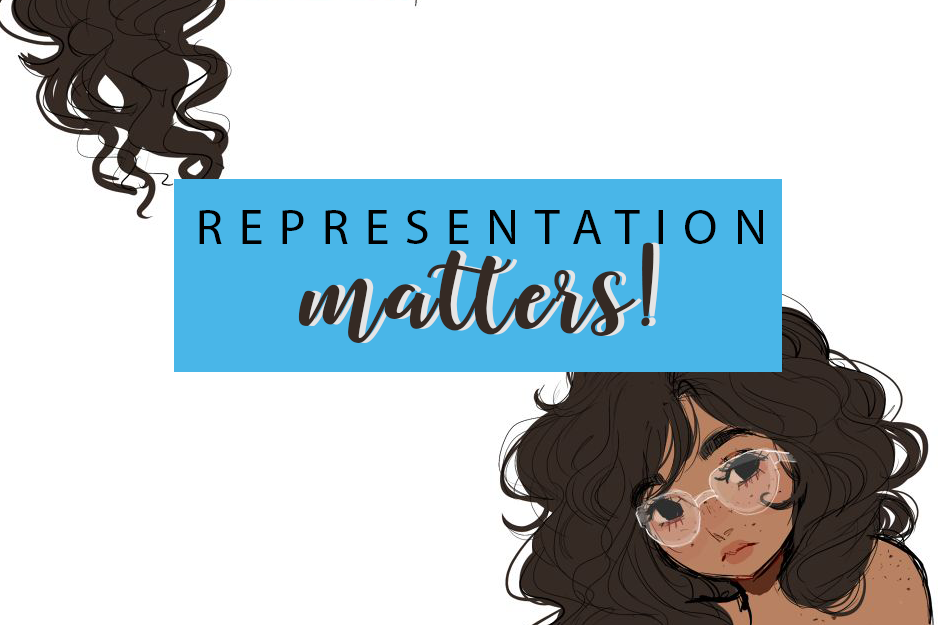
This topic came up a few days ago when I started a conversation on my twitter with some friends about fat representation in books. I’ve recently started drafting an idea about witches that features a fat main character (who’s a witch!). Like many of my book ideas, it involves magic, family, and friendship.
But it does not involve a romance.
This was one of my bigger doubts about writing — there are so many misrepresentations of fat girls in books out there, mostly involving the horrible stereotype that to be happy you must lose weight. BULLSHIT, K? It’s has happened a lot. To get the guy, she must lose weight. If she doesn’t, nobody will ever love her.
I’m not even going to start on how problematic that trope is, but as my MC doesn’t have a romance or a romantic interest, I was worried if somehow I was also feeding that trope that she can’t be loved because she’s fat. Thanks to a great many people in my mentions, we’ve had a great conversation about it — and as the conclusion was reached, you don’t need a romance to be happy or loved. So I continued to write the book about saving the world and your family, etc.
But the whole topic got me thinking about the only narrative, and what Chimanda Adichie’s TED talk about the Danger of the Single Story. (If you haven’t watched click through here and watch it on youtube. SO important.) The thing about the single story is reducing the character to a single feature and a single thing they can do. For black people in Hollywood, for example, it’s the slavery story. It’s always a story about racism. A black woman can’t play an action hero or anything else — she’s stuck to the same story where she ‘belongs’.
That applies to so many stereotypes, in all genres and to be honest, I’ve seen it in YA, especially about portraying depression. A depressed character never goes out to save the world or his family or be an austronaut or anything else — he’s depressed and that’s all he does. The same can go for about any type of representation in a book, be it a different sexuality, race, religious background, trans representation, physical disabilities or mental illnesses… When are we going to step up the game and make it about something else? The muslim girl who doesn’t have to worry about suffering religious discrimination and is a detective solving a murder mystery? Or the guy in a wheelchair that is a hell of a videogame player and wins a competition? The person with bipolar disorder who goes out and save the planet?
We need those kind of stories. We need the others too — but when I sit down to read a book, I’d like once to read a book about a person like me out there saving the world and being a hero. Fighting sexism, racism and homophobia is something I do everyday. I know that story already. What I don’t see is the superhero narratives with POC, the action movie hero who’s not white or a man. A fat girl who doesn’t care about losing weight, something else that takes me outside of the single story we’ve been forced into.
When I go to the movies, I don’t see myself in Star Wars (now thankfully I do, but the point stands). I don’t see the romantic comedies about bisexual girls, and I don’t see the President who has depression but also other things. When writing a single story, you’re not only reducing the character — you’re reducing the issue and the people to that one single thing.
I’m not one single thing and neither are you. I cannot be defined only by the words Latina, or bisexual, or depressive or anything else. I can’t be defined just by my love of star wars, or my obsession with lasagna, or the fact that I love twitter or how last week I slept in my clothes. None of those things can define me completely — they’re all my atributes. And who cares if I want to be a paleonthologist, or an austronaut, or a writer? I can be all those things at once and more.
So when writing diversity, remember this — diversity doesn’t just mean including some kind of ‘issue’. It also includes giving them a proper, real story. Don’t focus on the single narrative. Focus on the whole thing and what you can do with it.
Not all books have to be ‘issue’ books. Some books can be fantasy with fat girls as the main characters, and who don’t give a damn what anybody else thinks.
